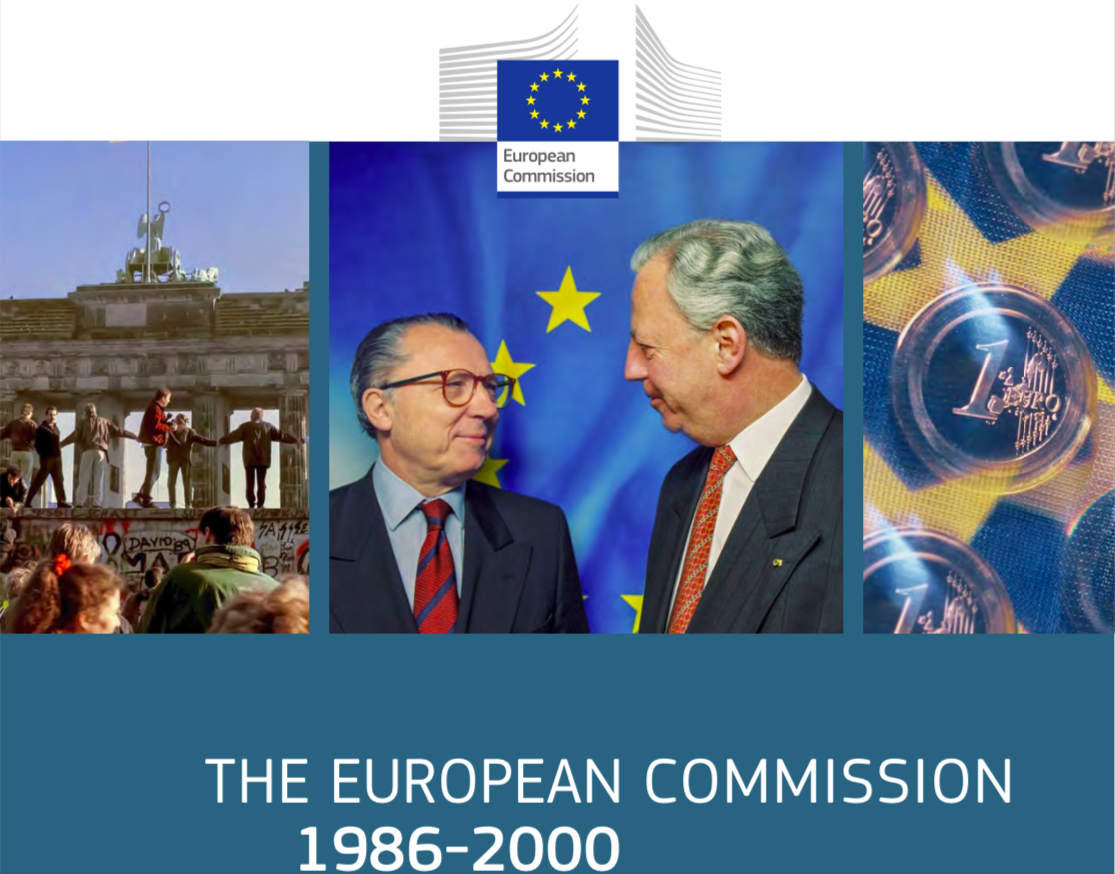The European Commission 1986-2000
BOOK LAUNCH and DISCUSSION: The European Commission 1986-2000. History and memories of an institution

The European Commission 1986-2000. History and memories of an Institution is the third volume coming out of the European Commission’s massive oral history project on its own institutional history. It is unique, in the sense that the interviews and privileged access to archive material makes it one of the first archive-based histories of the European Union of the 1990s; and potentially problematic, in the sense that it is a commissioned work with editorial oversight by former EU officials. Accordingly, three themes will be discussed (1) the Commission role between 1986 and 2000; (2) the potential and pitfalls of massive projects and multi- national oral history data-bases; (3) challenges of writing commissioned institutional history.
The third volume covers a fascinating period of the history of European integration. The background of the whole story is the dramatic rupture of the end of the Cold War, which was both an immense challenge and an opportunity for what would become the European Union (EU) to expand and to redefine itself as a normative world power. However, the starting point, in the early 1980s was bleak, as the then European Community had to come out of a triple crisis: the budgetary dispute with Britain; the halted enlargement negotiations with Spain and Portugal; and the lack of institutional reform. After the 1984 Fontainebleau European Council, President Jacques Delors was able to revive the process of European integration, with the support of a dynamic Franco-German couple. The European Commission played a leading role and under the presidency of Jacques Delors, three big projects were initiated: the completion of the internal market, the economic and monetary union, and the opening up to the countries of central and Eastern Europe. President Jacques Santer and Romano Prodi then pursued the realization of these projects, through the EMU and enlargement negotiations and by reflecting on the future of European governance. The end of the period foreshadows some of the troubles that would come: the surprisingly strong popular opposition to Maastricht in countries like Denmark, but also France; the piecemeal and unsatisfactory reforms with the Treaties of Amsterdam and Nice; British opt-outs from the Euro and an increasingly split Conservative Party.
The book is based on an unmatched database of interviews with more than 200 former European officials. The researchers were also granted privileged access to the Commission’s archives, and to papers of high officials such as Jacques Delors or Romano Prodi (at the Historical Archives of the European Union). The interviews – together with those conducted for the two previous volumes – are all available online, which makes this one of the most comprehensive institutional oral history projects to date. It also offers a unique insight into the EU’s very recent history and is in this sense a landmark ahead of the terrain historians will sink their teeth into for many decades to come.
Programme
10:00 – 10:01 Welcome by Haakon A. Ikonomou (University of Copenhagen)
10:01 – 10:15 Vincent Dujardin (UC Louvain): General presentation of the project and its results
10:20 - 11:20 Methodology and Premises - writing institutional history
Éric Bussière (Université Paris-Sorbonne): Challenges & opportunities of writing commissioned institutional history
Dieter Schlenker (Historical Archives of the European Union) & Sophie Kaisin (UC Louvain): Challenges & opportunities of multi-national oral history databases
Chair: Morten Rasmussen (University of Copenhagen)
11:30 - 12:30 - The European Commission, 1986-2000 - policy areas
Éric Bussière (Université Paris-Sorbonne): Economic Policies and Measures
Jan-Henrik Meyer (Max Planck Institute): Environmental Policy
Chair: Catharina Sørensen (Think Tank Europe)
Full digital access to book: The European Commission 1986-2000 (hardcover edition) - Publications Office of the EU
